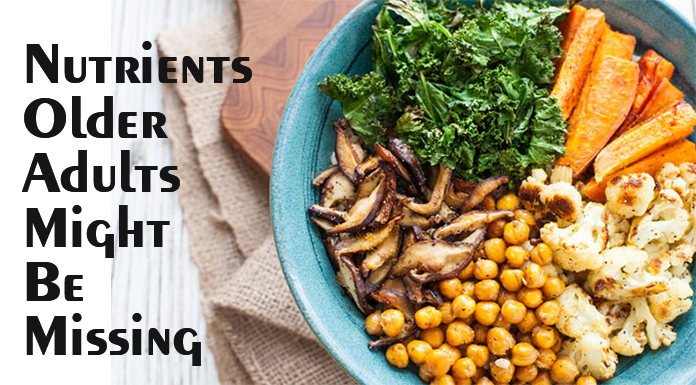
Nutrients Older Adults Might Be Missing
As we get older we generally need a fewer calories because we are not that active as we once were. This also means that food for elderly people must be rich in nutritional value, while being low on the calories it offers.
Why do seniors miss out on nutrients?
Consuming adequate nutrition often becomes a challenge for seniors due to some of the reasons mentioned below
- Many seniors have to live with dietary restrictions due to some ongoing medications or health concerns
- Bodily changes prevent seniors from eating a lot of foods they ate when they were younger.
- The body is unable to digest several key nutrients as it gets older.
- Seniors are unable to easily chew and digest many food items and as a result they leave them out of their diet.
- With age, often the sense of taste dimiishes. As a result appetite also reduces.
However, despite all these reasons, it must be remebered that the elderly need a balanced and nutritious diet all the more
Nutrients to include in the diet for seniors. Whenever you plan a meal for any senior member of your family ensure that the diet has the following nutrients that make it healthy and appropriate for them:
Calcium:
- Needed for – Calcium plays a vital role in maintaining bone health.
- Issue – As age progresses the intake of calcium decreases via the diet. As a result, the body starts deriving and fulfilling its calcium requirements from the bones, making them brittle and prone to fractires.
- What can be done – Include low fat milk and dairy products in your diet. Other sources are broccoli, cereals, leafy greens and fortified juices.
Vitamin D:
- Needed for – Vitamin D helps the body absorb calcium from the foods we consume.
- Issue – As we age our skin is unable to absorb Vitamin D from the sunlight.
- What can be done- ensure that seniors consume rich sources of Vitamin D in their meals. These are fish, eggs, mushrooms, fortified yogurt and juices.
Potassium:
- Needed for – Potassium is needed in our diet to support bone health. It also helps prevent kidney stones and helps control high blood pressure as well.
- Issue – Even though elderly need 4700 mg of potassium per day, their diets do not support the intake of the same.
- What can be done – A concious effrot need to be made to include fruits and vegetables in every meal as they are the best sources of potassium. Some good examples are – plums, prunes, banana, and potatoes. Never take pottasium supplements without your physicians advise as too much potassium too is harmful for the body.
Magnesium:
- Needed for – Magnesium is required for the normal functioning of over 300 varied bodily processes. It not only maintains your immune system, but is also vital for bone, muscle and heart health.
- Issue – Magnesium easily gets lost in processed foods. In case of the elderly, some medications may interfere with magensium absorption in the body.
- What can be done – Elderly should avoid opting for processed foods. Instead they should eat more of raw fruits and vegetable salads. Home cooked meals that include beans, seeds, and nuts to supplemen their magnesium requirement.
Dietary Fiber:
- Needed for – Dietary fiber helps maintain a healthy digestive system. It also protects us against heart ailments by absorbing excess cholesterol.
- Issue – Not just the elderly, but even young adults do not make a conscious effort to eat a fiber rich diet.
- What can be done – Increase your intake of whole grains, vegetables, fruits, beans, seeds, and nuts. Maintain mini food bags that contain dried berries, dried fruits, nuts, and seeds. Use these as ready to eat, mid-day snacks to fulfill your fiber requirement. Opt for whole fruits instead of juices.
Folic Acid:
- Needed for – Elders need folic acid to prevent anemia. Low intake of folic acid can lead to Anemia. Folic acid can be destroyed by prolonged cooking or poor choice of food like tea with a toast diet.
- Issue – Elders whose diet does not include fruits and leafy greens or a fortified breakfast may fall short on folic acid.
- What can be done – Try to intake a lot of fruits and vegetables or a fortified cereal breakfast in order to maintain optimum levels of folic acid in your body. You could also ask your doctor for a folic acid supplement if needed.
Vitamin B12:
- Needed for – Elders need Vitamin B12 to create blood cells and to maintain a healthy nervous system.
- Issue – With age it gets difficult to absorb the vitamin from the food we eat.
- What can be done – Elders must increase the intake of foods that provide vitamin B12. These are Fish, eggs, meat, milk, chicken, and milk products. They must ask their physician if starting a Vitamin B12 supplement is advisable or not.

